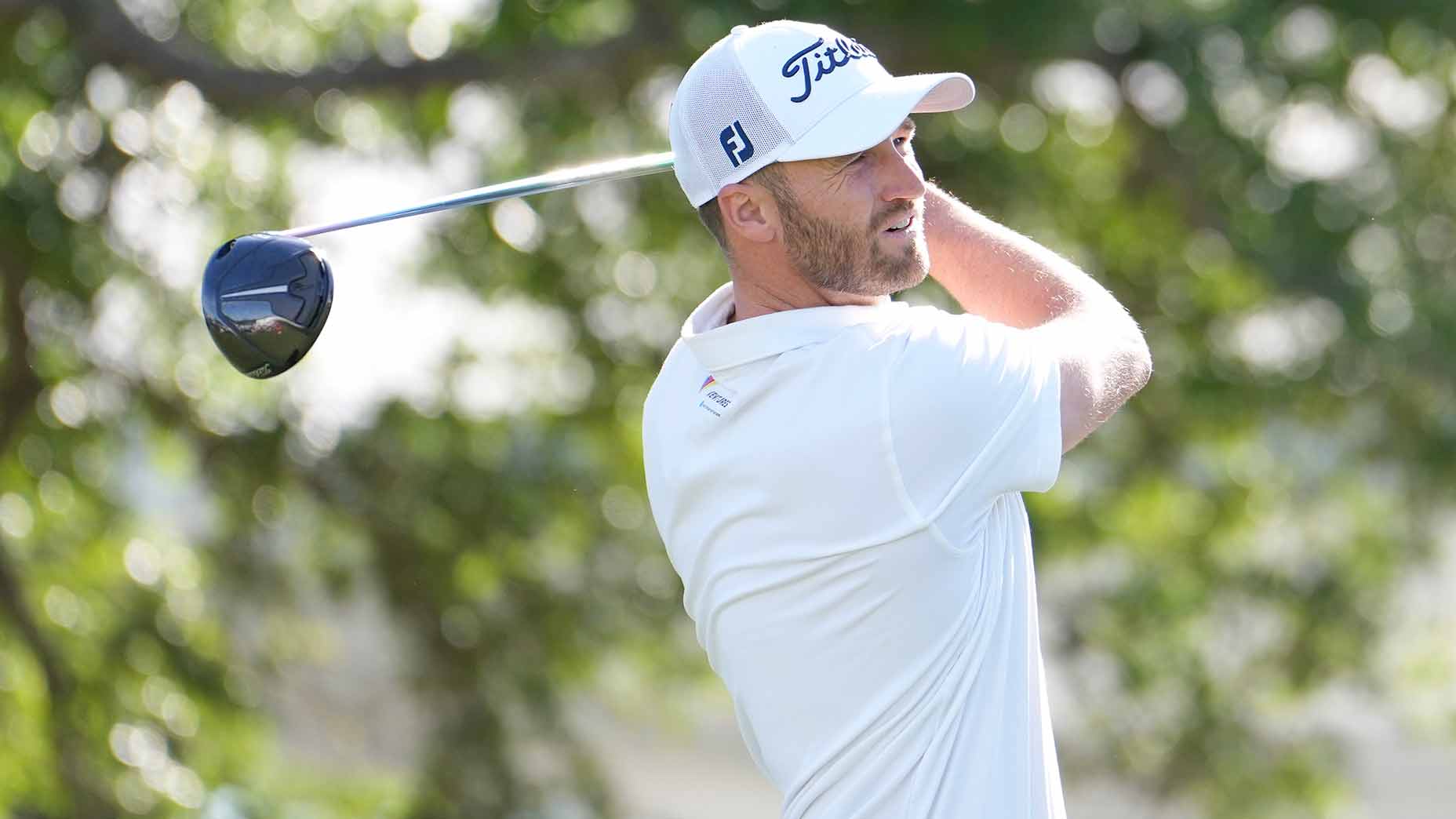One thing most pro golfers and teaching professionals agree on is that amateur golfers — players like you and me — don’t usually make the most of their warmups. And they aren’t wrong.
Whether it’s carelessly taking driver-only swings or firing shot after shot into the abyss without a target in mind, there are lots of ways you can ruin a range session. But having a smart, thought-out plan can pay major dividends — and it might help you to steal an idea or two from a pro.
Wyndham Clark, for example, has a couple of ideas amateurs can learn from. The 2023 U.S. Open champ recently joined GOLF’s Dylan Dethier for the latest episode of Warming Up, and in it Clark explained how one important part of his warmup includes not only getting loose and hitting the shot shapes he wants, but planning ahead for specific holes he’s about to play.
One portion of his range session is called “tough tee balls,” in which his caddie, John Ellis, goes through tough driving holes they’ll face on the course that day. Ellis might call out the 5th hole, for example, and Clark will then hit his tee shot as if he’s playing it, dialing up a low cut, draw or whatever they feel would best conquer that hole in the given conditions that day.
The last thing they do on the range, however, is play the first hole. While that might be something some amateurs do as well — ending with a driver they plan to hit a few minutes later off the opening tee — Clark takes it a step further. He not only hits the club they plan to tee off with, but he’ll also hit the likely approach club and shape it the way they’d like to attack that day’s pin position in whatever wind or weather they are dealing with.
Speaking to Dethier, Clark explained what this drill might look like if they were about to play the par-4 1st hole at Augusta National. He’d usually hit 3-wood off the tee, he said, which would likely leave about 170 yards and a 7- or 8-iron.
“So hopefully it’s center of the fairway [off the tee], and if it’s front-left pin — you can’t miss left there — I’m going to try and start this ball, in my mind, kind of at the center or right-center of the green and draw it into the flag,” Clark said. “If it doesn’t draw, then I’m putting up the hill 20 feet. So you hit that shot, then you go, ‘OK, perfect,’ then you just walk right to the tee and you’ve already hit the shot and feel good and you hopefully just replicate what you did on the range.”
Another reason this is a good practice is because you are following one shot (a driver or wood off the tee, most likely) with an iron (for your approach). That’s obviously the order of operation on the golf course, but not necessarily how you usually practice on the range, where it’s more common to hit the same club over and over.
So next time you are on the driving range and preparing for your round, take a quick glance at that scorecard and try to figure out what club you want off the tee and with your approach into the green. It works for Clark; maybe it will for you, too.
